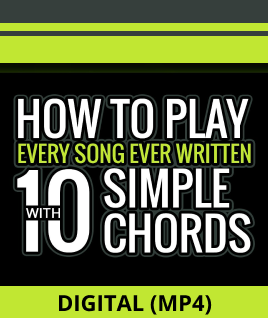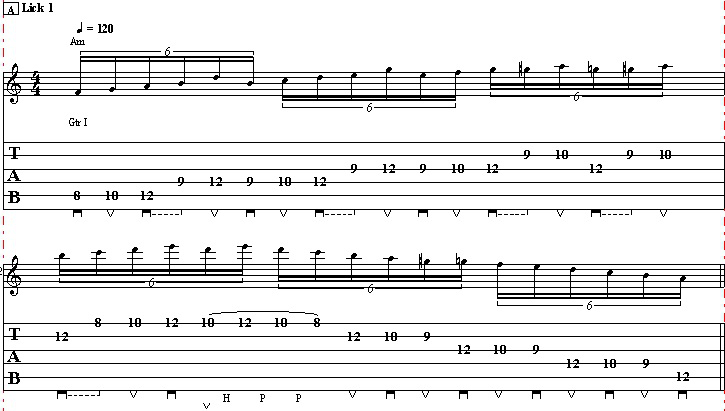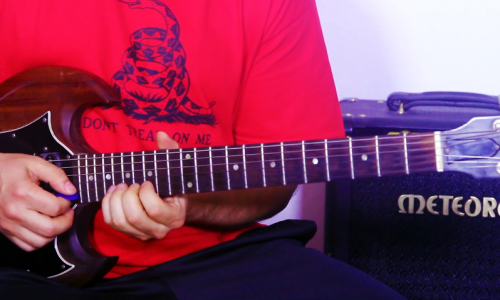Check this out! How To Play “Black Math” By The White Stripes – Easy Power Chord Guitar Lesson Riffs. Jack White turned the guitar world upside down when he came on the scene with his retro guitar style. Learn a piece of guitar history with step by step video instruction and free tabs.
Hey, how’s it going this is Sean Daniel with Guitar Control, we’re going to learn a classic song by the White Stripes off the fantastic album Elephant it’s called “Black Math”. It’s easy to play some quick power chord action going on super simple to remember we’re going to break it down I’m going to tap it out.
It’s really kind of simple but it’s got some really cool stuff really heavy rocking power cord stuff going on I’m just using the strap and the neck pickup absolutely not what he uses with Jack why using what doesn’t matter is so kind of like the spirit of it I’m running this through an earthquake of Palisades put your device’s policies your storm paddle you’re going to look for some kind of fuzz paddle like a big muff or something like that but we’re just going to do a regular distortion for today.
Click on the Tabs button to follow chords and tabs.
We’re going to start with power a cord so it starts on this C power chord 3rd fret on the A-string and the 5th fret on the D-string together just like that the sound of rock and roll a beautiful power cord. Now this is going to be a quick switch between this C power cord and then A-string lower G power chord. So we’re going from A series would change to a C to a G to a C, now it might become tricky if you’ve never done quick power chord stuff like this, so I’m going to do them both like this back and forth, now if you look at my hand I’m going to use my pointer finger for the most part.
I mean I totally could use my pointer finger and my ring and we’re going to make it easier and talk about kind of new movements and switching between power chord strings. If you look at my hand it doesn’t really look like I’m doing a whole lot, I think when you’re first starting out you almost have a tendency to try that kind of sounds sloppy, so the battery get the more control you have over just kind of rolling up into the next quarterly can you see this you just practice on that 3rd fret of the A-string I’m almost kind of rolling the pressure of my finger back and forth you can do that with a whole chord back and forth.
Now I’m getting a mute in between in that way this sustained part of these cords are going to be down strokes. After the C to G bar it’s really just the 5th fret on the E-string same difference so they think of a 4 count as a bar its two bars and then two bars of A so when you have them together.
The next part of the song this is like a fill but then the actual versus kind of happened really just over this a power so really I’ve gotten these two bars of a the blue Erik’s are going to happen over all right and let me go back into this what we’re thinking of is just like a really simple powerful film now after that what do you think of this is of course. I guess if you want same kind of rhythm, we’re going to open it up to an E, same kind of feel we have going you’re just really like powering through with the entire song anyway to make a power cord and then 8 and 10A to make a C power cord there are different ways you can do this you could go open E open G, A, 3a yeah it doesn’t really matter how you do it I kind of like the sound of sliding as compared to going down strings but again it’s your world man we’re all just we’re all just living in all right so the chorus is going to be, so that’s really the bulk of the song.
Now there is a breakdown which I want to talk about and I want to start talking about adjust with single notes because actually a tempo changes is something you want to hear listen to the song to kind of really get the feel for it and he’s got like a lot of effects going on through like the solo of that but the chords behind it are really super simple that’s really kind of the same thing going on again most songs don’t have tempo changes in them I’ll just kind of like remind you of the beat a little bit lost but usually the template stays the same this one actually comes down a little bit and so you have kind of like this really driving a note you can do it as a court so to you at any kind a gets this d-chord power border with the bend so you can bend a little counter part of a tenth fret of the low E string or you can even just if you want to make it’ll be easier I’ll hit it in the very first part and then take the 5th fret on the a string which is also a DIA and use either record or just get that bend but really when I kind of just rip that D like just bang
it’s really kind of like a like a sludgy heavy breakdown you go over that a few times and then we go back to the chorus chords I’ll be at the new town so then you know after that we jump back into the first chords so really it super simple in just a couple of parts but you really want to kind of make it as thick as possible which is why I’m on the neck pickup of the strap that’s the part of the bridge you know there’s a lot of total options you have really kind of depends on the distortion pedal of the fuzz pedal that you’re using but I just think that kind of sounds good in the neck pickup of the strap but yeah super heavy heavy song something everybody should learn because it’s really great it kind of giving that little technique go now we’re just kind of moving into power chords in a quick kind of heavy and rhythmic way and you want to talk really quick about the mutes in between these power chords.
Since I’m getting such a down stroke down heavy kind of thing going on in between those my piggies coming back up right every time you go down most your windmill and every time I go down you gotta come back up okay so one thing that you could work on is as you’re going as you rolling up you kind of take the pressure off of that power cord and then when you hit with the upstroke you get that debt and that’s an exaggerated way to do it and then then eventually you’ll get it better where you can get just the right amount of sustain that you need until you roll it up
Now we get to the a part you don’t have to worry about the music and the beautiful thing about the song this song is doesn’t have to be super clean it’s kind of meant to be really raw super dirty so even if it is a little bit messy and it’s not like it’s something that you know totally works super fun to play a really easy drum beat that you can get pretty much any of your friends to kind of like jam along to you and something that I think is just a lot of fun to play so hopefully check it out if you haven’t listened to the album elephant innocence high entirety yeah I definitely urge you to do that one of the great all-time heavy guitar albums out there and if you have any questions or comments hit us up in the comment section you’ll get back to you as soon as we can anything else you guys want to see let us know in the car control channel check out these other videos by myself other great instructors check out the website we’re going to get that tab and I will see you again very soon thanks a lot.
[ninja-popup ID=715]




